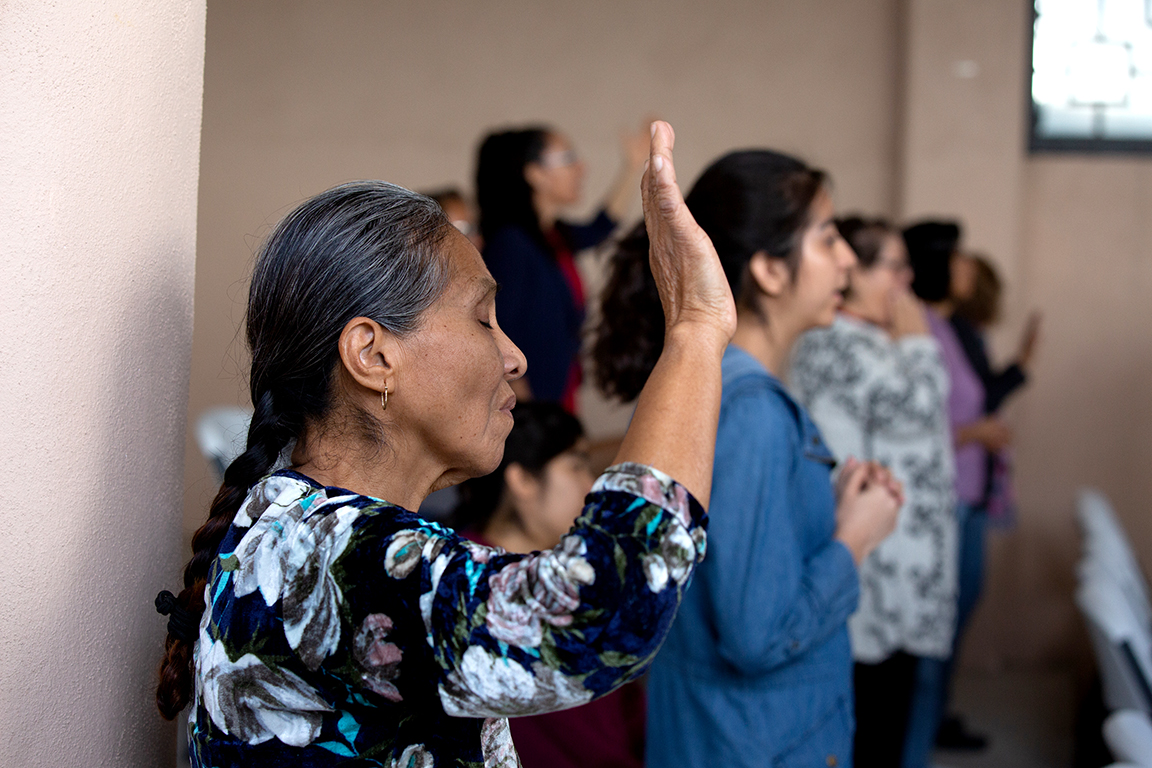
Missions Resources
Don’t Underestimate Your Potential to Mobilize Missionaries
January 11, 2017
by Mark Watson

For the gospel to spread, people must be mobilized to go spread it. And if you’ve ever served as a missionary (even short-term), you are uniquely equipped to show others where and how they can serve, too.
When I began getting my classmates involved in missions, I had no idea it would one day be my full-time ministry to mobilize the church to missions. I started small. And today, I want to show you how you can do the same.
How I Became an Accidental Missions Mobilizer
In college, a TEAM missions coach recognized my desire to serve God in missions, and she walked with me as I prepared for my first short-term mission trip.
I served in a summer camp ministry in the Middle East, and that trip impacted me more than anyone I encountered there. I saw God move, despite my failures, and I saw hearts softened to the gospel. And I saw the need for more workers, short-term and long-term.
When I came home, I knew my continued ministry impact in the Middle East was limited, or even non-existent. However, I realized I could mobilize other believers to participate in missions and extend the reach of the gospel. So I acted.
I shared my experience with a student at my school. The next summer he joined me in the Middle East.
Then, God opened doors wider than I could have ever imagined. I approached the Global Outreach department at my university about getting involved in this specific international camp ministry. Through the Holy Spirit’s leading, they agreed.
TEAM then equipped me to recruit, train and lead a team of five more students back to the same summer camp. All of these students witnessed Christ moving in this camp, in the host country and in their own hearts.
Some students led campers to Christ. Some continue friendships with non-believers through social media. Some are even praying about entering into full-time ministry themselves. I count myself blessed to have seen God moving alongside these phenomenal college students.
But God didn’t stop with a team of five students.
My university saw the impact these five made and committed to sending more. For the past three years, a university team has returned to work at the same camp.
I look back at this movement of God through a young college student, and I am in awe that God would use me to mobilize his people in missions. I never expected that my passion would lead to a university’s commitment to pray for this people group and to send more teams.
How You Can Mobilize Missionaries, Too
You can start movements of missionaries in your communities, too. God is faithful and in the business of calling His people into a relationship with him. If you will let the Holy Spirit use you to mobilize others, He will.
Here are a few tips on how to mobilize missionaries from your community:
1. Share your experience boldly and often.
Share your missions experience with people you believe could serve well in missions. Seek out platforms in your church, small group or even among your friends to share how you experienced God in your short-term trip. Ask God to put the right people in your path and to work through you as you speak.
I was so vocal about my short term trip, I’m sure my roommates knew every hour of what I did. And they shared it with others, too. Then, my university let me share in their chapel, speaking to around 3,000 students. The word was out, and people knew there was a need.
Many times, people are willing to go, but the vast number of opportunities is overwhelming. If they hear personal anecdotes and know you will get them connected, it just may be the link they need.
2. Seek out specific people.
Ask God who you can tell about a particular missions need. Write down the one or two names that come to mind, and commit them to prayer.
Then, in the coming months, tell them about available missions opportunities. Affirm the ways you see God working in their lives. Point out their strengths and how you believe God would use them and challenge them if they were to go.
People need to know they have a support system when they are prayerfully considering missions. Be that support and encouragement.
3. Ask people to pray about serving.
Don’t end the conversations and presentations with just a “thanks for listening.” Challenge people in your community to pray about their specific roles in missions.
Prayer unleashes the Holy Spirit to guide His people however He chooses, and it really does change hearts, minds and plans. Remember to follow up with people, too. It could be years before someone’s heart is moved to participate in missions, but every seed sown and prayer spoken is worth it.
God could use you to mobilize the next Hudson Taylor, simply by sharing your story and inviting someone to serve too.
The harvest is still so plentiful, and the workers are still so few. Encourage the people in your community to pray to the Lord of the harvest – maybe He will send them out.
Meeting with a TEAM Missions Coach helped prepare me for so much more than just an upcoming mission trip. Get connected today!


